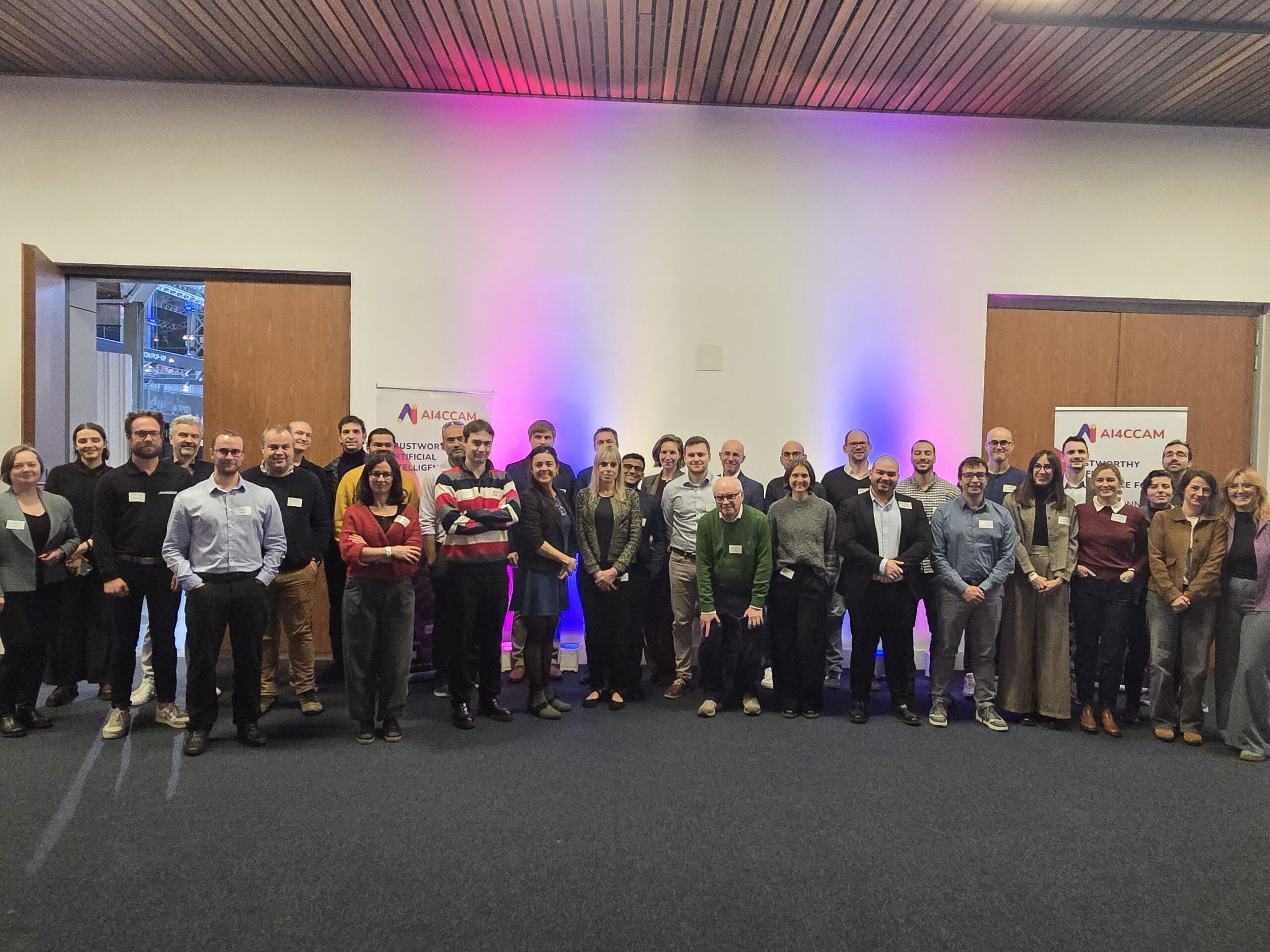News

AI4CCAM Concludes Two-Day Event in Brussels Showcasing Project Results and Trustworthy AI for Automated Mobility

The AI4CCAM consortium gathered transport operators, policymakers, researchers and industry partners for two days of dialogue and demonstration on the future of trustworthy artificial intelligence in automated mobility. Held at Autoworld in Brussels, the programme combined a participatory Stakeholder Forum followed by a full day Final Event, offering both a societal reflection on user needs and a technical overview of the tools and research developed throughout the project.
Over three years, AI4CCAM developed a suite of AI based tools and methodologies to enhance safety, transparency and human acceptance of connected and automated mobility. These outcomes formed the core of discussions and demonstrations during the event.
The Stakeholder Forum began on 17 November with an introduction by Arnaud Gotlieb, the project coordinator, who outlined the project’s objectives and the value of scenario modelling, digital twins and explainable AI in developing safer and more transparent automated mobility systems.
Discussions of the day explored human trajectory prediction, scene understanding and qualitative reasoning, alongside important considerations related to data privacy, cybersecurity and risks such as data poisoning in V2X communication. The Forum also featured a public discussion guided by Guido di Pasquale of PAVE Europe, who led participants through key questions on public trust, user acceptance and the human side of automation. Moreover, the forum examined public trust and user acceptance, reflecting on why some citizens may be hesitant about automated vehicles and how communication, exposure and inclusive design can help strengthen public trust. Key takeaways from these discussions highlighted the need for clearer user communication, stronger safeguards for data driven systems and closer cooperation between public transport authorities and technology developers.
The day ended with an interactive World Café session, hosted by Jacques Ferrière of UTFP, where participants exchanged views on road space sharing, AI adoption, collaboration among operators and authorities, the evolving roles of operators and staff and the need for closer engagement between public transport authorities and AI developers. These exchanges reaffirmed the importance of developing AI systems that respond directly to operational realities and societal expectations.
The Final Event on 18 November placed a stronger emphasis on results, demonstrations and future policy direction. The opening session featured remarks from Kristóf Almásy of the European Commission’s DG CONNECT, who outlined Europe’s ambitions to accelerate safe, responsible and competitive AI development. Arnaud Gotlieb returned on stage to present the consolidated outcomes of the project, reaffirming that AI offers significant opportunities for automated mobility when supported by transparent methods, rigorous testing environments and a strong human centred approach. This included the introduction of AI4CCAM’s core tools, such as advanced simulation frameworks, digital twin environments and explainable AI models developed collectively across the consortium. Throughout the day, experts and partners presented the project’s simulation tools, digital twin environments and AI models, with discussions covering scene understanding, uncertainty detection, interactions with vulnerable road users and the robustness of automated systems. Panel discussions underscored three central messages: the importance of transparent and traceable AI decision making, the need for robust testing environments that reflect real world complexity and the continuing relevance of human oversight in automated mobility.
A noteworthy session dedicated to user acceptance included insights from a related EU funded initiative, with John Paddington from the SINFONICA project sharing learned experiences on public engagement and perceptions of autonomous shuttles. While external perspectives enriched the discussion, the event placed strong focus on AI4CCAM’s own achievements and the contributions of consortium partners throughout the project lifetime. Following this, demonstrations and exhibition booths allowed participants to experience the project’s output firsthand, from virtual reality environments to prototype interaction systems designed to enhance safety and predictability around vulnerable road users. The extensive work invested by partners in preparing these demonstrations, including fully functioning technical prototypes and immersive testing platforms, was widely recognised by attendees and illustrated the depth of the consortium’s expertise.
The two-day event concluded with closing reflections from Pedro Alfonso Pérez Losa of the European Commission’s DG CINEA, who underlined the importance of continued European collaboration in advancing trustworthy and inclusive AI for mobility.
The AI4CCAM consortium extends its sincere thanks to the entire organising team, all presenters, guest speakers, moderators and every attendee whose engagement, expertise and contributions made the Stakeholder Forum and Final Event a success. Together, they helped showcase how multidisciplinary collaboration can support the development of safer, more transparent and more inclusive automated mobility solutions across Europe. Above all, the event demonstrated the substantial results achieved by the AI4CCAM partnership and the strong foundation it has laid for future work in trustworthy AI for mobility.




